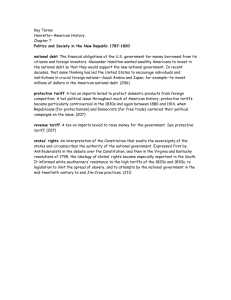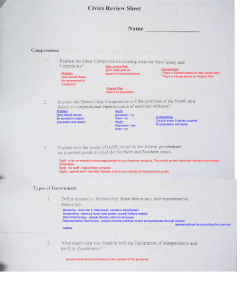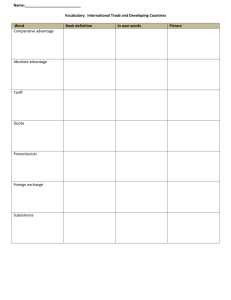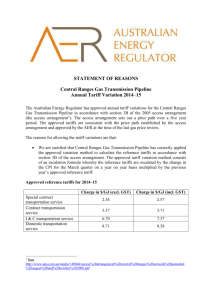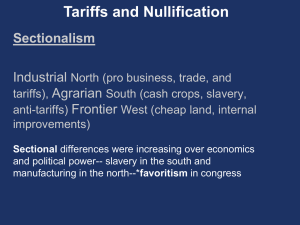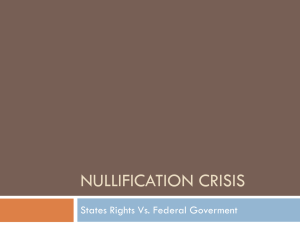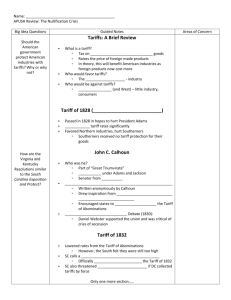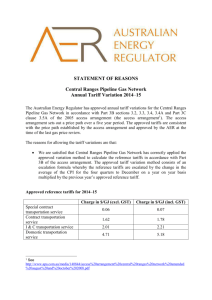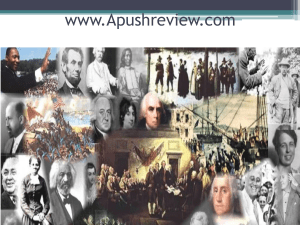Protective Tariffs, Taxation and Banking
advertisement
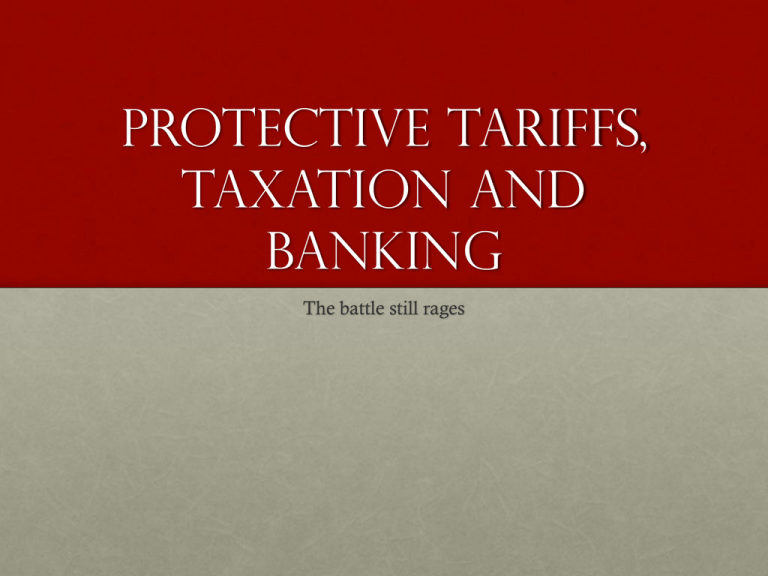
Protective Tariffs, Taxation and Banking The battle still rages Protective Tariffs Another example of how you can’t please everyone. What is a Protective Tariff? In theory, it’s a duty (tax) on imported products to raise their price, which makes them less attractive to consumers (the people who buy stuff), thereby protecting domestic industries from foreign competition. Against • People opposed to the protective tariffs felt like they prevented people from buying the foreign products at lower prices. • Southern states were still agricultural and didn’t manufacture much, so either way, they were having to pay more for things. • Northern states seemed to be making a lot of money off the tariffs because they were manufacturing more. • Southern states saw the protective tariffs as unnecessary and unfair. For • Those in favor of the protective tariffs said it protected domestic industries from competition from foreign industries who sold their products at lower prices. • Northern states were way on board with this because their economy was based on industry so people paying more to them for goods=bigger paychecks. • Tariff of 1816 (this is the one we’re talking about): After the War of 1812, the British dumped a bunch of manufactured goods they had stored here in the market. • It was cheap and the northern manufacturers couldn’t compete with the low, low prices. • This tariff was the first tariff passed by congress with the implicit intent of protecting American industry. • Tariff of 1824: Due largely in part to the work of a man named Henry Clay, made the tariffs even more restrictive and included things like glass, lead, wool and cotton. • Southerners sold a lot of cotton to the British. • Tariff of 1828-It was passed under Andrew Jackson’s presidency to make it appear he wanted free trade for the south and protection for the north, but it just riled everyone up even more. And This is how we started on the road to the civil war • Tariff of 1789-Mostly to help the new country pay off all the debts from the Revolutionary War. Taxation The gift that keeps on giving. The way it works When taxes are high, it takes away from consumers so that the government can provide infrastructure and services that benefit the economy and citizens. When taxes are low, consumers have more money to spend and the economy can grow. The battle lines Southern States • Southern states had a high rate of personal debt because all of their money came from agriculture and they had no industry. Northern States • Northern states were less effected by tax rates because most taxation was based on tariffs. • So they could keep the economy going, they kept taxation and government spending much lower than northern states. • Their economy was also booming because of industry and they had an influx of immigrants to work in their factories gave them plenty of cheap labor. • Raising taxes would be another major blow to their economy. • So, more people + more cities +more industry=more economic diversity.. Andrew Jackson was not a tax fan Andrew Jackson opposed a strong central government and opposed unreasonable taxation by the federal government. He thought taxation could quickly lead to an abuse of power and control over the American people. Banking System The one thing the north and south agreed on • As industry started to grow, the northern states needed loans to build more businesses, so they relied on the banks. • Southerners also got a lot of loans and used future crops as collateral. • So, the banking system kept the economy going. Alexander hamilton really liked the banks, too • Alexander Hamilton really supported a national bank, but it wasn’t in the constitution. • He supported a more loose interpretation of the Constitution and decided the clause that said when Congress is granted power, they are also granted the “necessary and proper” means to carry out that law. • He thought the national bank was “necessary and proper,” so looking at the clause the way he did, the national bank was totally constitutional. Jefferson and Madison liked it less • They both thought the power of the government should be clearly stated in the Constitution. • They also believed the Constitution should be followed strictly. • In following it strictly, the national bank was unconstitutional and Alexander Hamilton was not being very nice. Bank of the United States The Bank of the United States ended up being really powerful and controlled the nation’s money supply. Andrew Jackson said it was made up of a bunch of wealthy elitists run by private wealthy bankers. So, when he was given a chance to sign a new charter bank bill, he decided to veto it instead.
